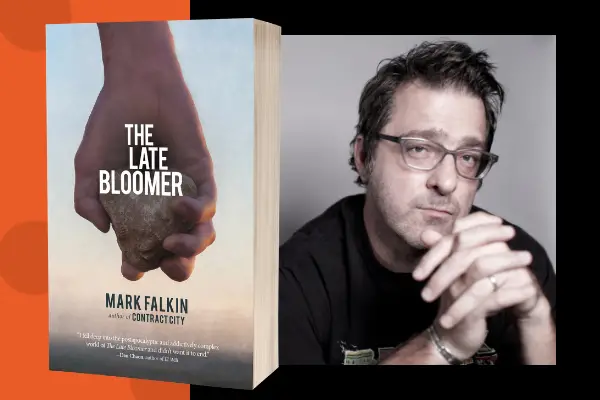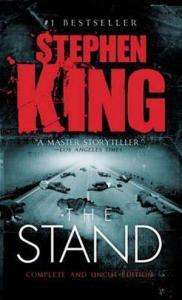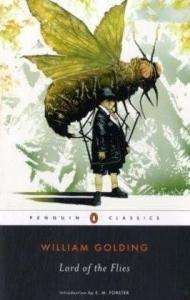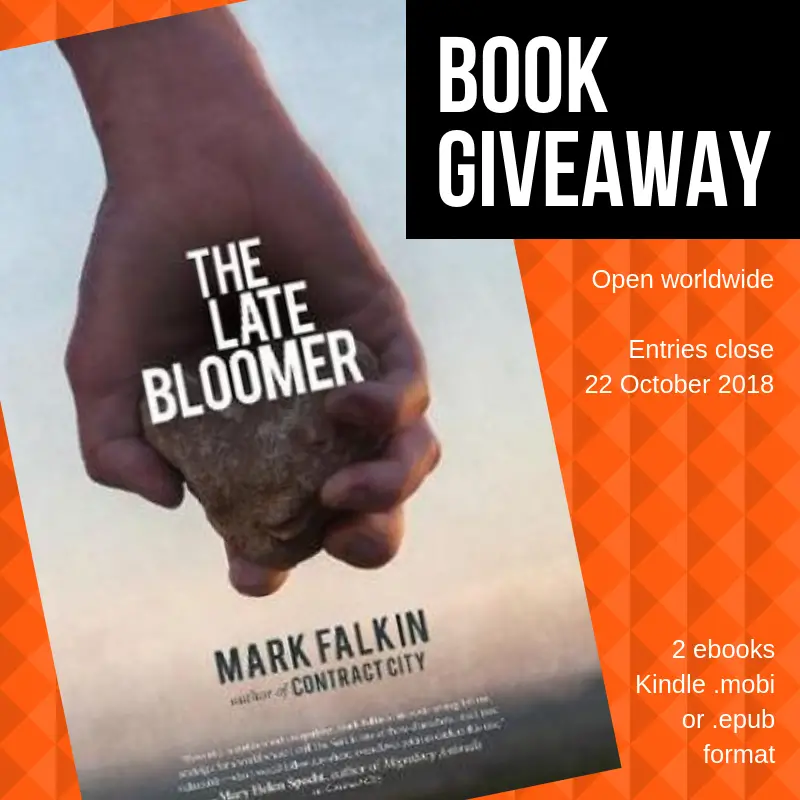THE LATE BLOOMER author Mark Falkin, Q&A
Today we welcome author Mark Falkin to discuss his new postapocalyptic horror The Late Bloomer thanks to Rare Bird Books and California Coldblood Books. For context or indirect comparison, imagine The Stand told with the intimacy of Thirteen Reasons Why. PLUS, to celebrate the release of The Late Bloomer we have 2 ebook copies to giveaway.

The Late Bloomer Synopsis
The world experiences an abrupt and unthinkable cataclysm on the morning of October 29, 2018. Kevin March, high school band trombonist and wannabe writer playing hooky, is witness to its beginning. To stay alive, Kevin embarks on a journey that promises to change everything yet again. On his journey, he chronicles his experiences on a digital recorder. This book is a transcript of that recording.
Depicting an unspeakable apocalypse unlike any seen in fiction—there are no zombies, viruses or virals, no doomsday asteroid, no aliens, no environmental cataclysm, no nuclear holocaust—with a protagonist in the tradition of Holden Caulfield, The Late Bloomer is both a companion piece to Lord of the Flies and a Bradburyian Halloween tale.
The Late Bloomer is harrowing, grim and poignant in the way of Cormac McCarthy’s The Road. Told in Kevin March’s singular and unforgettable voice, delivering a gripping narrative with an unsparing climax as moving as it is terrifying, The Late Bloomer defies expectations of the genre and will haunt those who read it.
Disclosure: If you click a link in this post we may earn a small commission to help offset our running costs.
Author Interview – Mark Falkin
What do you consider to be the main theme or message in The Late Bloomer?
It’s usually only after I’ve written a first draft of something in fiction do I begin to know what it means. Let me mix metaphors: you uncork the subconscious and it drives; it’s doing the thematic heavy lifting. It’s telling you something but it’s obscure for a while. Your subconscious stands outside a frosted window and scratches at it, moaning, this is what I’m saying. With The Late Bloomer, upon finishing the last words and typing The End (and then having a shot of whatever brown alcohol is immediately on hand, day or night, usually day, usually morning, a completion-of-first-draft tradition) I asked, “What the hell does this mean?” Though it will evolve and refine over time, for now I’ve come to believe that what my subconscious theme-driving taskmaster said through me the mere scrivener was: there is total terror in group think. When the individual cedes its autonomy to the mob, that’s when the darkness falls and the nightmares begin. Yes, it indeed takes a village to make things go, but it takes a village of individuals. The concept of the loss of the self is frightening. It’s not an uncommon theme. It’s a truth that, per Emily Dickinson’s axiom, I told slant. Related to this theme is horror vacui– fear of the void. That silence of the world Kevin battles is perhaps the loss of self to the void.
 What literary antecedents or influences would you say went into the cauldron that generated The Late Bloomer?
What literary antecedents or influences would you say went into the cauldron that generated The Late Bloomer?
Toil and trouble—Lord of the Flies, Barker’s story In the Hills, the Cities, and Shirley Jackson. Lovecraft, whose writing is so fussy and stilted (yet something about that aspect makes it all the more terrifying), the deep cosmic/existential horror he fathoms is there for sure. Other characteristics common to this gene pool sprung from the fey codes lying in wait on the dark side of the helix exist in I Am Legend, The Stand, Arthur Machen’s The Great God Pan. McCarthy’s The Road is there in the cauldron I suppose, if I were to do a reduction sauce. The films The Blair Witch Project and The Wicker Man (1973) without question went to work on me, as did the Twilight Zone classic The Monsters Are Due on Maple Street.
What inspired you to write this story in particular?
The three simultaneous sparks were these: There’s a line in Lord of the Flies that goes
You knew, didn’t you? I’m part of you? Close, close, close! I’m the reason why it’s no go? Why things are what they are?
and a little supernova exploded in my mind and I probably said behind clenched teeth in public “that’s it!” The book’s working title was No Go for a long time and was even initially pitched with that title. There’s that and there’s a certain work of fiction that I can’t disclose for spoilage reasons; the way it made, still makes, me feel . . . I approached this book at the outset from the standpoint of wanting to make the reader feel like I did reading that work. And then there’s this: a few people reading might remember these emails I used to send out during October years ago, I think 1998 through 2003. They were these epistolary little stories that came in bi-weekly instalments that I called the Chronicles of Spooky Month which over the years got longer, less funny and more scary. In maybe 2012 I attempted to take a run at it again for fun and as a palette cleanser. I wrote a couple thousand words and put it away, never sending anything out. This was the impetus for The Late Bloomer. This book really is an all-grows-up, exploded version of that. Pure fun. Labor of love.
 Ultimately, I love the genre. What inspired me was that I wanted to write a horror novel that was unlike anything else out there and that was the scariest thing I could think of and what makes it scary isn’t just a set piece here, a set piece there, but something that holistically makes you shudder, making you feel something deeper than just simple fear but rather a resonating poignancy through the pathos.
Ultimately, I love the genre. What inspired me was that I wanted to write a horror novel that was unlike anything else out there and that was the scariest thing I could think of and what makes it scary isn’t just a set piece here, a set piece there, but something that holistically makes you shudder, making you feel something deeper than just simple fear but rather a resonating poignancy through the pathos.
Do you consider this a “coming of age” story for Kevin?
Kevin is forced to grow up mighty fast. It’s fight or flight, so in that way, yes. His coming of age is, let’s say, accelerated.
Who do you hope reads this novel?
Absolutely everybody who likes jet black books that you can’t put down. Kevin’s story may have the outward appearance of young adult literature, but it’s no more limited to that genre than King’s It, replete as it is with questing teens, or Lord of the Flies itself. The marketing hack who lives inside me insists, “Tell ‘em it’s horror for the John Green reader! And be sure to mention Bird Box!”
What thought(s) do you want readers to come away with most after finishing The Late Bloomer?
I don’t know that it’s a discrete thought I want to leave them with but rather a feeling: haunted. And not just a haunting that’s fearsome but one that holds within it an abiding resonance that over time lingers as a heart-panging poignancy more than dread or fright. I believe horror can teach and reach deeply, maybe deepest. After all, all love stories are ghost stories.
What makes you want to write?
What Bernard Malamud said: I’d be too moved to say.
What got you started in writing?
In third and fourth grade I would make these holiday-themed puzzle books for my classmates. I’d create this hand-drawn book and ask my Dad to run off copies at work which he dutifully did, having his secretary do it. She stapled them too. The teacher was flummoxed and thrilled at my self-aggrandizing precociousness, helping me hand them out at homeroom around Halloween, Thanksgiving, Christmas, Valentine’s Day, and Easter. They were mini versions of those Highlights kids’ magazines and they uniformly contained a word search, a crossword, a maze you solved with your finger or pencil, hidden pictures, and flash fiction. Really flash—“I saw Santa in my living room on Christmas Eve and he’s sure fat alright.” The looks on my classmates’ faces trying to solve my puzzles, read my little story… oh, I was hooked then. Orwell wrote of the sheer egoism of the writer. I felt that glory in Third Grade.
 Skip to high school and I found myself doodling epigrams in the margins of whatever we were doing in AP English class. These later bloomed into bad poetry. I did the bad poetry thing off and on through college and law school. In law school I thought I could do what Grisham did and write a novel my first year, that blistering 1L year. Um, no, I didn’t pull that off, but I did start a novel that I published ten years later.
Skip to high school and I found myself doodling epigrams in the margins of whatever we were doing in AP English class. These later bloomed into bad poetry. I did the bad poetry thing off and on through college and law school. In law school I thought I could do what Grisham did and write a novel my first year, that blistering 1L year. Um, no, I didn’t pull that off, but I did start a novel that I published ten years later.
What other writers have inspired your own writing?
Oh, God. All writers, even bad ones, inspire in some way. The ones I can longlist, who combined form my lodestar are Stewart O’Nan, Daniel Woodrell, Douglas Coupland, Stephen King, Karen Russell, Barker, Palahniuk, Lethem, DFW, Ellis, Proulx, McCarthy, McGuane, William Gibson, Bradbury, Updike, Capote, Oates, TC Boyle, Sedaris. Steve Martin’s Cruel Shoes.
Oh and Vonnegut, Kerouac, and the insufferable personality that is Hunter S. Thompson.
Tommy Orange inspires me. Merritt Tierce inspires me. Katherine Dunn’s Geek Love inspires me. Emil Ferris inspires me. Billy Collins inspires me. Joan Didion inspires me. Kate Tempest inspires me.
Not listed: Faulkner. Henry James.
Do you have any plans for future instalments set in the world of The Late Bloomer?
I do, but I’m working on something else right now. I’ve written two books in a row that are ostensibly YA dystopian/apocalyptic. I’m veering away from that genre but may steer back if The Late Bloomer finds a readership that demands the next.
Was any part of The Late Bloomer especially challenging to write?
Nothing is easy about writing. Blood from a stone, etcetera. But the hardest comes after the book is done and you try to find readers. This book was the most fun I’ve had writing. It just came. I paced the floor and talked to myself a lot and acted out scenes in my living room—this goes without saying—but I did much less pacing this time. The ending was not hard to write per se but it was hard to emotionally contend with.
What, if anything, did you learn during the process of writing, rewriting, and editing this novel?
So much, as with any novel, that it’s hard to convey. One specific thing I can say is that with this, because it’s so literally voice driven, I learned how to tell a story in a highly conversational and informal way. Kevin speaks to his dear reader. I speak to my dear reader.
How long did you work on The Late Bloomer?
I don’t know how to measure that but the period during which it was written spanned from 2012-2015, not including revisions after the publisher acquired it.
What advice would you give to aspiring writers?
There’s no muse, guys and gals. Just set a word count goal and sit down and write not what you know but what you must know, what you’ve got to know. Yes, every day, until it hurts and then write through that until it sings. There’s a funky physical high that comes with writing. I lose time and feel an aesthetic bliss. Maybe it’s endorphins? Whatever it is, I’m a junky for it.
Write on those days you don’t feel like it. When you’ve got a cold, when you’re stressed about your day job, when your personal life is FUBAR, when you’re really hungover and just don’t wanna and you petulantly stamp your feet expressing same. Do that so many times that you can’t even begin to count how many and then you’re starting to become a writer, whether the IRS recognizes you as such or not. You are.
Get your copy of The Late Bloomer from:
Amazon | B&N | Kobobooks | Book Depository | Indigo | Booktopia(Aus)
About the Author, Mark Falkin
Mark Falkin is the author of the novels Days of Grace and Contract City, which was nominated for the Whiting, Shirley Jackson, Alex, Morris, Edgar, PEN/Bingham, PEN/Hemingway, LA Times, Anisfield-Wolf, and Flaherty-Dunnan awards. Though he remains a card-carrying member of the Texas Bar, he is a literary agent by day and oftentimes by night. He lives with his wife and daughters in Austin, Texas. Check out Mark Falkin’s website, or connect with him on Facebook or on Twitter.
International eBook Giveaway
We have 2 ebook copies (Kindle .mobi and .epub) of Mark Falkin’s The Late Bloomer to giveaway.
- Open worldwide, entries close midnight 22 October 2018
- You can also improve your chance of winning by spreading the word via Twitter , Pinterest/Instagram and Facebook/Google+/Webpage
- The winners will be randomly selected and announced on our Facebook Page
SORRY, ENTRIES CLOSED — See winners announcement

